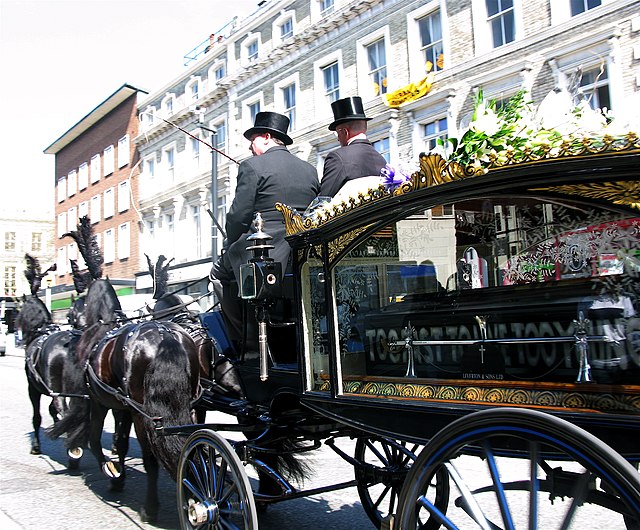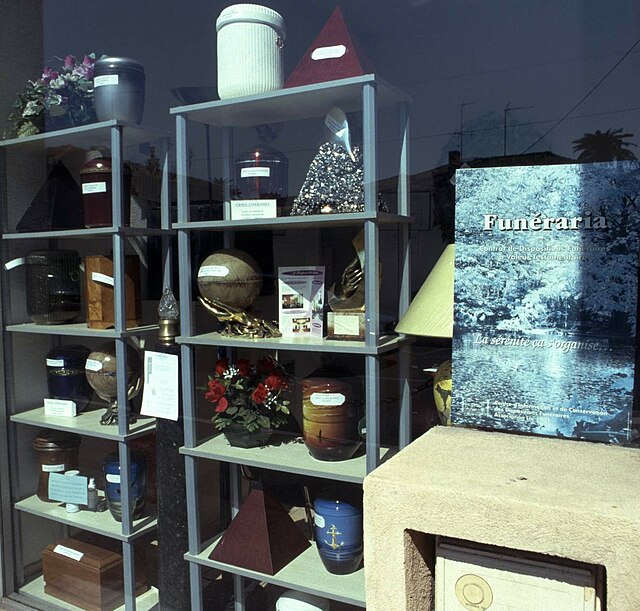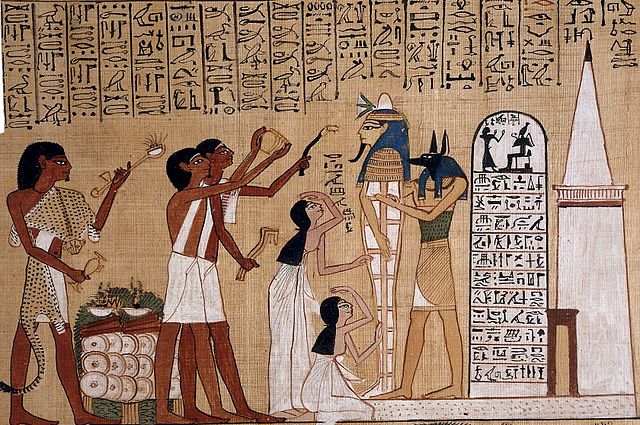A funeral director, also known as an undertaker or mortician, is a professional who has licences in funeral arranging and embalming involved in the business of funeral rites. These tasks often entail the embalming and burial or cremation of the dead, as well as the arrangements for the funeral ceremony. Funeral directors may at times be asked to perform tasks such as dressing, casketing, and cossetting with the proper licences. A funeral director may work at a funeral home or be an independent employee.
Funeral directors driving a hearse in a funeral procession
Showcase of an urn shop in Nice, France
A funeral home in Jyväskylä, Finland
Mortician's restorative tools, Museum of Funeral Customs, Springfield, Illinois
A funeral is a ceremony connected with the final disposition of a corpse, such as a burial or cremation, with the attendant observances. Funerary customs comprise the complex of beliefs and practices used by a culture to remember and respect the dead, from interment, to various monuments, prayers, and rituals undertaken in their honour. Customs vary between cultures and religious groups. Funerals have both normative and legal components. Common secular motivations for funerals include mourning the deceased, celebrating their life, and offering support and sympathy to the bereaved; additionally, funerals may have religious aspects that are intended to help the soul of the deceased reach the afterlife, resurrection or reincarnation.
Opening of the mouth ceremony (Ancient Egypt)
Kotsuage bone picking ceremony (Japanese Buddhist)
Funeral of Pope John Paul II (Catholic Church)
Cremations at Manikarnika Ghat (Hindu)








